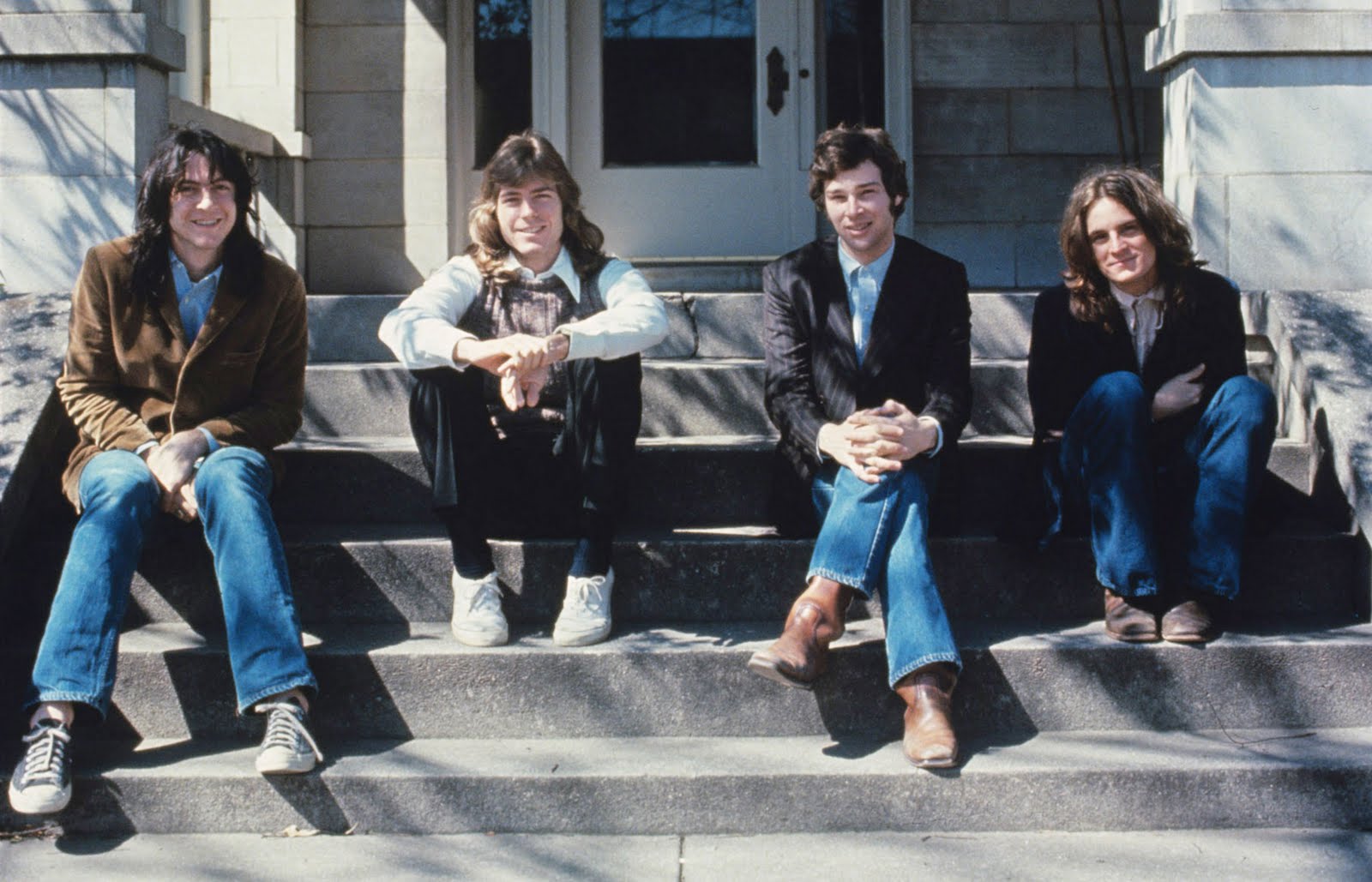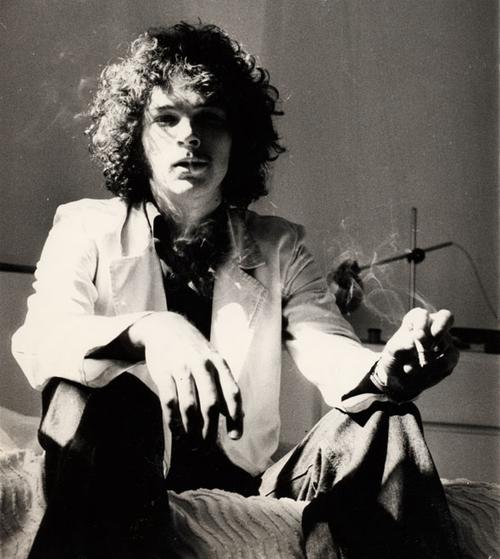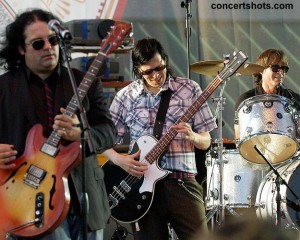A lot of the reason I love Big Star is because I love the IDEA of Big Star. They’re an under-appreciated, long-forgotten (American!) band with semi-tragic story, a GREAT group name, three fantastic albums with a definite arc, a jangly power-pop sound, and — most importantly — a slate of great, emotive songs.
Throw in the band’s huge, warm sentimental streak, a touch of astral weirdness (that never taints their clean pop structure to songwriting), and a pitch-black third and final album, and… You have a band basically hand-designed to be idolized by me.
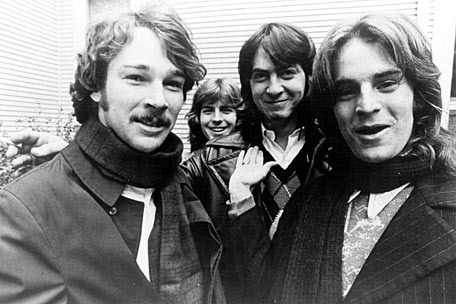
Original Big Star lineup: Chris Bell (left, guitar), Alex Chilton (right, vocal/guitar), Andy Hummel (center-right, bass), and Jody Stephens (back, drummer)
Big Star started as a trio called Icewater formed by Chris Bell, a talented teenaged musician from Memphis. Bell and two of his friends played local shows.
Around this time, Bell struck up a friendship with singer Alex Chilton. Chilton was minorly famous as the vocalist for the Box Tops, a pop-soul group who had hit #1 with “The Letter.”
What’s crazy is that Chilton was only sixteen when he recorded “The Letter.” Chilton was considered something of a prodigy: his massive, mature pipes made him sound fifteen years older than he was.
Bell and Chilton bonded over being teenagers in a grown-up’s music industry. They shared Beatles- and Yardbirds-inspired aspirations of writing and recording beloved music. Chilton proposed the idea of forming a Simon and Garfunkel-type duo. Bell declined, but at a club after one of Icewater’s shows, Chilton played the trio a few songs he’d been writing.
Bell liked what he heard, and invited Chilton to join Icewater. The band renamed themselves after a local supermarket and recorded their first album. Bell and Chilton took Lennon-McCartney style shared songwriting credits on most of that first album.
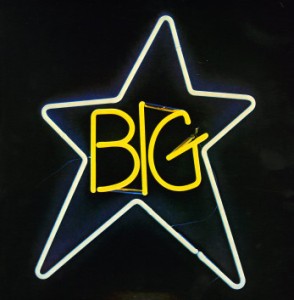 The result, #1 Record released in 1972, is a minor pop masterpiece: Chilton tames his booming vocal projection for a more expressive timbre, and the whole sound is built around great vocal harmonies. Electric and acoustic guitar blend to give album a feel that alternates between propulsive and reflective.
The result, #1 Record released in 1972, is a minor pop masterpiece: Chilton tames his booming vocal projection for a more expressive timbre, and the whole sound is built around great vocal harmonies. Electric and acoustic guitar blend to give album a feel that alternates between propulsive and reflective.
The songs are simple, sweet, melodic, and highly effective. The most famous track here is “In the Street,” covered by Cheap Trick for That 70’s Show theme song. But it’s far from the lone highlight: “Watch the Sunrise” and “When My Baby’s Beside Me” are instant classics that capture an eerie, radiant warmth.
The song I’ll be listening to for the rest of my life, though is “Thirteen.” This sentimental ballad about young, uncertain love has Chilton’s all-time-best vocal, a wavering and yearning croon. The lyrics are simple but sweet, and the understated guitar line is evocative and romantic.
It all adds up to an album that’s one of my 25 or so favorites ever. The critics loved it as much as I do, praising the band’s purity and pleasantness in a time when power pop and jangly guitars were out.
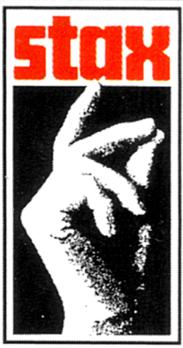 The masses, on the other hand, did not take to Big Star. #1 Record was a commercial flop, causing a huge amount of tension in the band. The album’s simple, throwback feel worked against it. The perfect album cover didn’t attract eyes. Stax Records, a label that had huge stars in the late ‘50s and early ‘60s but struggled afterwards, was a fittingly retro and un-savvy record company to release it.
The masses, on the other hand, did not take to Big Star. #1 Record was a commercial flop, causing a huge amount of tension in the band. The album’s simple, throwback feel worked against it. The perfect album cover didn’t attract eyes. Stax Records, a label that had huge stars in the late ‘50s and early ‘60s but struggled afterwards, was a fittingly retro and un-savvy record company to release it.
The ensuing band tension is the stuff of legends. The band got in fist fights in the studio. Bassist Andy Hummel and Bell in particular developed a grudge, taking turns destroying each others’ instruments over a series of months.
Bell entered depression and quit, then rejoined the band a couple times leading up to the recording of the second album. Just when it looked like things had calmed, the studio manager who’d been working with the band lost all the masters for the recordings. Bell, in a drug-induced rage, smashed the studio manager’s car, and the band fractured, Bell never to return.
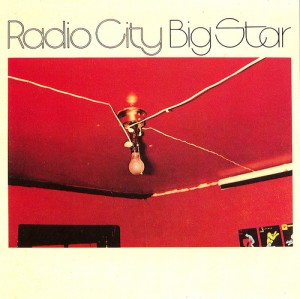 Eventually, the studio pieced together a complete second album through sporadic recordings of all band members except Bell. Big Star’s Radio City finally came out in 1974. The reviews were again positive, and the sales again disastrous.
Eventually, the studio pieced together a complete second album through sporadic recordings of all band members except Bell. Big Star’s Radio City finally came out in 1974. The reviews were again positive, and the sales again disastrous.
The album is a great follow up, with a slightly harder edge. The compositions are virtually all Chilton this time around, and Bell is hardly present at all. As a result, the vocal harmonies aren’t quite as strong, and the appealing homespun warmth (Bell’s specialty) is dialed back.
The songs are just about as great as #1 Record’s, though. There’s another sweet, innocent love song in the vein of “Thirteen,” the 100-second “I’m in Love With a Girl.” Radio City features the band’s best pop hooks, particularly in “September Gurls” and “You Get What You Deserve”. In some ways, the album is more consistent than #1 Record, with fewer lulls and more offbeat winners like “What’s Going Ahn” and “Morpha Too.”
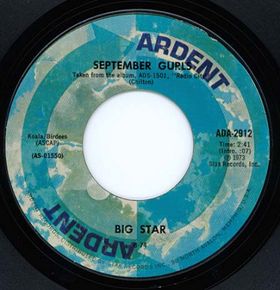 Despite the album’s strong critical reputation (“September Gurls” has gone down as the band’s trademark track), Stax — now run by Columbia — declined to heavily back the album, and the band was crushed with poor sales and disappointment once again.
Despite the album’s strong critical reputation (“September Gurls” has gone down as the band’s trademark track), Stax — now run by Columbia — declined to heavily back the album, and the band was crushed with poor sales and disappointment once again.
Bell was a year into his solo career at this point, and Hummel quit around Radio City’s release, too, leaving Chilton and drummer Jody Stephens as the two remaining members.
Eight months after the release of Radio City, Chilton and Stephens started recording some songs Chilton had written, enlisting the help of their girlfriends, some session musicians, and a supportive, open-minded producer (Jim Dickinson).
They recorded masters and tried find a label to back them. But their first two albums had sold fewer than 30,000 copies combined, and these recordings were bleaker than anything the band had recorded before: Nobody was interested, despite some good press when the 250 printed promo albums leaked to magazines.
This was the last straw for Big Star. They disbanded without officially finishing or releasing the album. The recordings were shelved. Everyone moved on.
(In fact, by some accounts, they already had disbanded: Chilton said that “we never saw [those recordings] as a Big Star record,” where Stephens said he was never sure if it was Big Star or a solo Chilton album he helped out on. Chilton called he and Stephens’ teaming “Sister Lovers” instead of Big Star on radio at one point, as Chilton and Stephens were dating a pair of sisters.)
But, three years later, the band grew a small cult following in the UK following a European re-release of the first two albums in one package. A small American label bought the rights for the third album’s recordings and  released them as Sister Lovers/Third based on two tentative titles for the album.
released them as Sister Lovers/Third based on two tentative titles for the album.
The reviews were again euphoric, the sales again miniscule — though, this time, that was expectation.
It’s a darker, less conventional album with some new bleakness. Chilton’s haunting vocals — especially memorable on brooding tracks like “Big Black Car” and “Holocaust” — make it still sound distinctly Big Star, but it’s clearly a different animal.
Though some rank it as the band’s best, I put it third behind their other two albums in my personal rankings, though I admit it’s something special and unique. I miss the warmth of the previous albums. (Stay tuned, though, as it’s grown on me recently.)
It does seem a prophetic album, though, foreshadowing Britpop movement, with some hints of fuzzy guitars and the sonic velvet associated with ’90s rock and shoegaze. “Big Black Car,” in particular, is a stunner of smooth, thick tunefulness.
The band was struck with tragedy shortly after the release of Third/Sister Lovers: Chris Bell died in a car accident in 1978. The original lineup would never reunite, but that didn’t stop the living three members from reuniting fifteen years later as their cult acclaim gradually expanded.
I haven’t listened to the band’s recordings from their reunion, and don’t have much interest in it. The band’s flare of productivity ‘70s, led by Chilton’s writing and moving vocals, are the only real Big Star, as far as I’m concerned.
Big Star gained some buzz in 2012 following the release of a documentary about the band. I haven’t seen it, but I hope to soon. (I’m sure my retrospective would be colored differently here if I had, so I might rewrite parts of this article after I see it.)
But regardless of how popular they become or how underrated they remain, I’ll always treasure Big Star as a miraculous band that slipped through the cracks and gave us some soul-churning, beautiful power-pop music that still highlights the genre today. Next time you’re getting ready for bed, turn on #1 Record to accompany your bedtime routine. As you drift asleep, I think you’ll get it.
“December boys got it bad”


